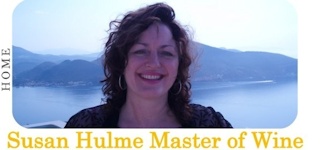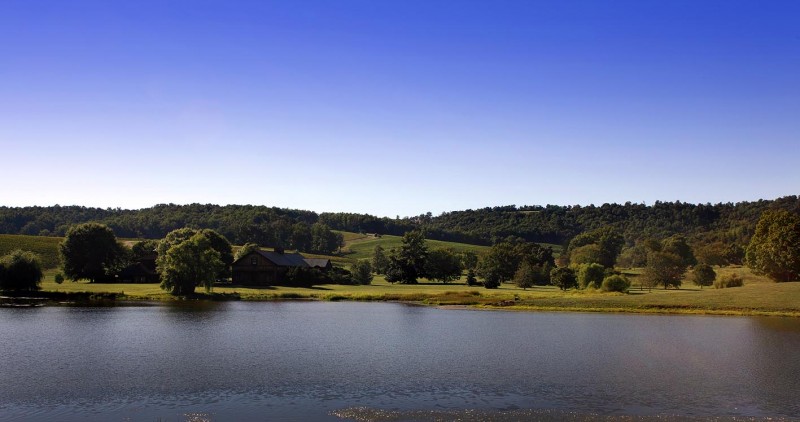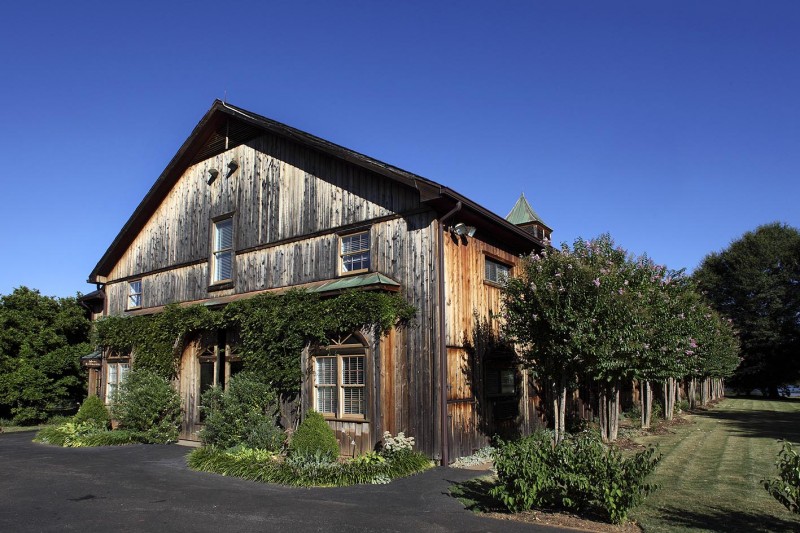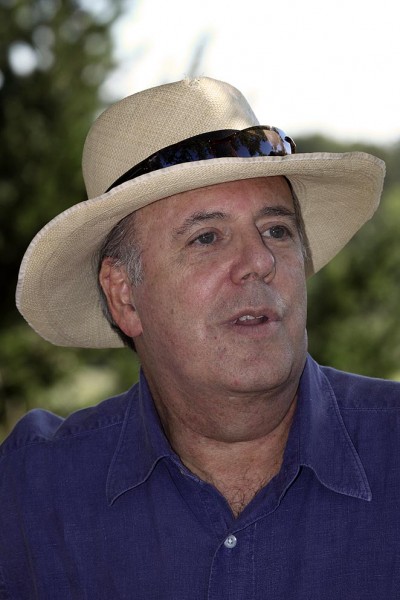Kluge Estate must be one of the most well-connected and well-heeled of the wineries we visited in Virginia; it has deservedly a big reputation for sparkling wine – both the Kluge NV Sparkling and Kluge rosé were drunk at this year’s Clinton wedding. Patricia Kluge had been married to MetroMedia billionaire John Kluge, (at one time the richest man in America) and was granted this estate as part of their divorce settlement.
On our visit there was a feeling that no expense had been spared on hiring the leading French names as consultants and on lavishing attention on the vineyard. Indeed it was Patricia’s friend, Robert Mondavi who suggested that Michel Rolland should consult for Kluge. This he has done for the last 6 or 7 years. This was deemed quite a coup as Kluge is the only East Coast winery he consults for. I had very high expectations of the visit so I was surprised when some of my colleagues and I were left feeling a little underwhelmed by some of the reds.
We were met and hosted for the first part of our visit by CEO and owner Bill Moses (Patricia’s husband), his director of winemaking, Gregory Brun, and a team of helpers. We were taken into the vineyards for a small sample tasting of four of their wines. It was late afternoon in early September, so a vineyard tasting should have been perfect but in this ‘exceptionally warm and early’ vintage, it was still far too hot to stand in direct sunlight so we dodged the intensity of the light and looked for shade under a large tree.
On their magnificent 900 acre estate in Middlesburg, Virginia, 220 acres are planted under vine, making them one of the largest producers in Virginia. Gregory explained that the vineyard plantings are divided almost equally between varieties for their red wines and those used for sparkling wines – 120 acres planted with Chardonnay and Pinot Noir for their sparkling wine, and 100 acres planted with red Bordeaux varieties. Their Chardonnay comes under the Monticello AVA.
Gregory Brun arrived from the Mâconnais 3 years ago with the particular aim of micro-managing the different vineyard plots. He explained that, while the topsoil is comprised of red clay and sandy loam, it varies in depth from 1 to 4 feet; also the sub-soils vary greatly in composition, being either impenetrable basalt or schist where the roots can go very deep. As vigour varies considerably, they use GPS to micro-manage individual vineyard plots and determine how to treat them and when to harvest etc.
With all this intense attention to detail I was expecting great things of the wines but found the two red wines back in the tasting room were a little subdued and flat, with somewhat rustic tannins (the Albermarle 2006 and Kluge Estate 2006 pre-release, both Bordeaux blends of Merlot, Cabernet Sauvignon, Petit Verdot, and Malbec). It may be that not all of the wines were freshly opened.
Admittedly we did try the 2006 vintage and when I asked Gregory when the effects of all the changes and fine-tuning in the vineyard would be reflected in the wines he said not until the 2007 vintage. Unfortunately we were not able to taste any barrel samples so I look forward to seeing what the 07’s are like.
Kluge are most famous for their sparkling wine, and are probably the most renowned in the state for this style. While Jonathan Wheeler is the director of the sparkling wine programme, the French connection is continued with consultant Laurent Champs, owner of Vilmart et Cie in Champagne. These wines are mostly a blend of Chardonnay and Pinot Noir although they also make 200 cases of sparkling Pinot Noir which from this vintage will be kept on the lees longer, 3 years instead of the previous two year regime. Gregory said they may even keep it for 4 years on the lees. We weren’t able to taste a barrel sample of this to get an idea how good it was or was likely to be.
The wines we tasted in the vineyard were all good, fresh, lively and appealing:
Kluge Sparkling Wine – 8g/l r/s – Mid-gold, lovely ripe apple and ripe yellow plum aromas on nose, creamy texture balanced by refreshing acidity.
Kluge Sparkling Blanc de Blancs, 20% fermented in old oak – Lovely rich brioche and pastry aromas and flavours combine with a creamy texture. For me the best wine we tasted here.
Albermarle 2009 Sauvignon Blanc, vines planted in 2006, $18 – This was was crisp and lively on the palate with green apple flavours and a hint of tropical ripeness, though it was just a little short on the finish.
Albermarle Rosé 2009 (saignée) – It was a deep salmon colour with green and red apple aromas; a good round, smooth mouth-feel, balanced with fresher, green apple flavours.
Photos © Steven Morris 2010 All rights reserved.
© 2010 – 2012, Susan Hulme MW. All rights reserved.



